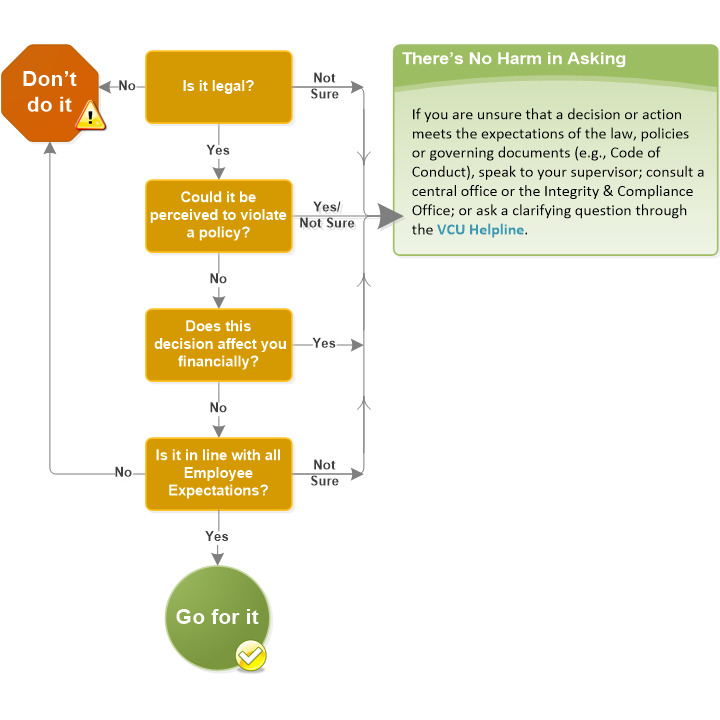Ethical decision-making
While both personal and business ethics may be defined in many different ways, the goal is always aimed at doing the right thing with roots in emphasizing truth, justice and fairness. Here at VCU, business ethics include the consideration of how your decisions impact your colleagues, the university and the public at large. Those in leadership positions have the additional responsibilities of setting clear expectations, leading by example and promoting a culture where employees feel comfortable asking clarifying questions and raising concerns.
Ethics is a component of every action or choice made in the workplace. Thus, all business decisions are in fact ethical decisions. Every choice we make in the workplace should reflect the expected behaviors outlined in our Ethical Standards contained within the VCU Code of Conduct.
The decision tree below provides a practical framework to assist in evaluating business decisions or actions. This guidance can help prevent misconduct and safeguard the collective reputations of the university and its employees.
Click here to download the Ethical Decision-Making Tree.
Ethical Related Actions
The 2005 National Business Ethics Survey suggests eighteen critical elements of organizational culture. These are the Ethical Related Actions pertaining to different levels of management and workers:
Self Check Questions:
- What am I doing to build trust?
- How do I model ethical conduct?
- Am I clear on my communication style and plan?
- Can I describe my communication plan as one that supports informing individuals of issues that impact them?
- Do I know what ethical decision making means?
- Have I communicated ethics as a priority?
- Do I share my challenges in an appropriate manner?
- How many times did I acknowledge and reward ethical conduct?
- When was the last time I talked about the importance of ethics in the workplace? How was this shared? What was the feedback?
- How do I uphold promises and commitments to employees and stakeholders?
- How do I hold those who violate our standards and values accountable?
- How do we all learn from the mistakes of a few?
- How do we know we have the policies we need? Are they effective?
- How are decisions made around late nights, weekends, holidays, travel?
